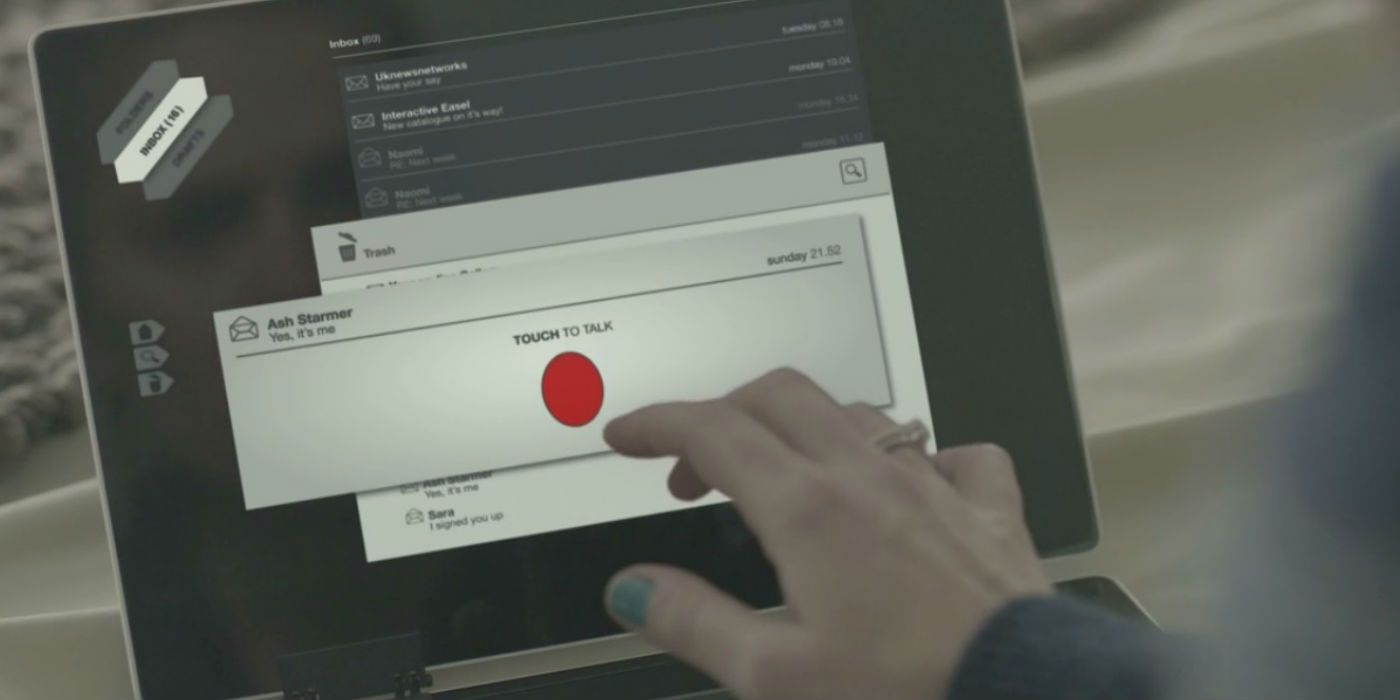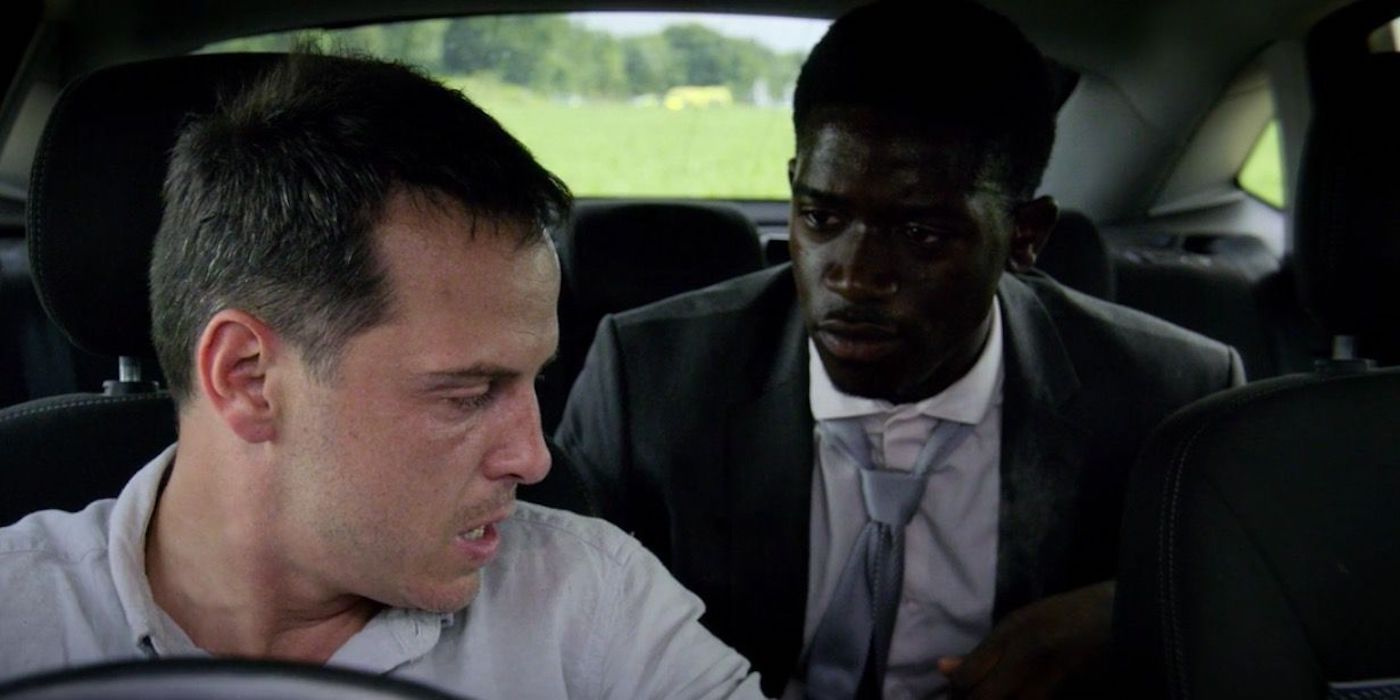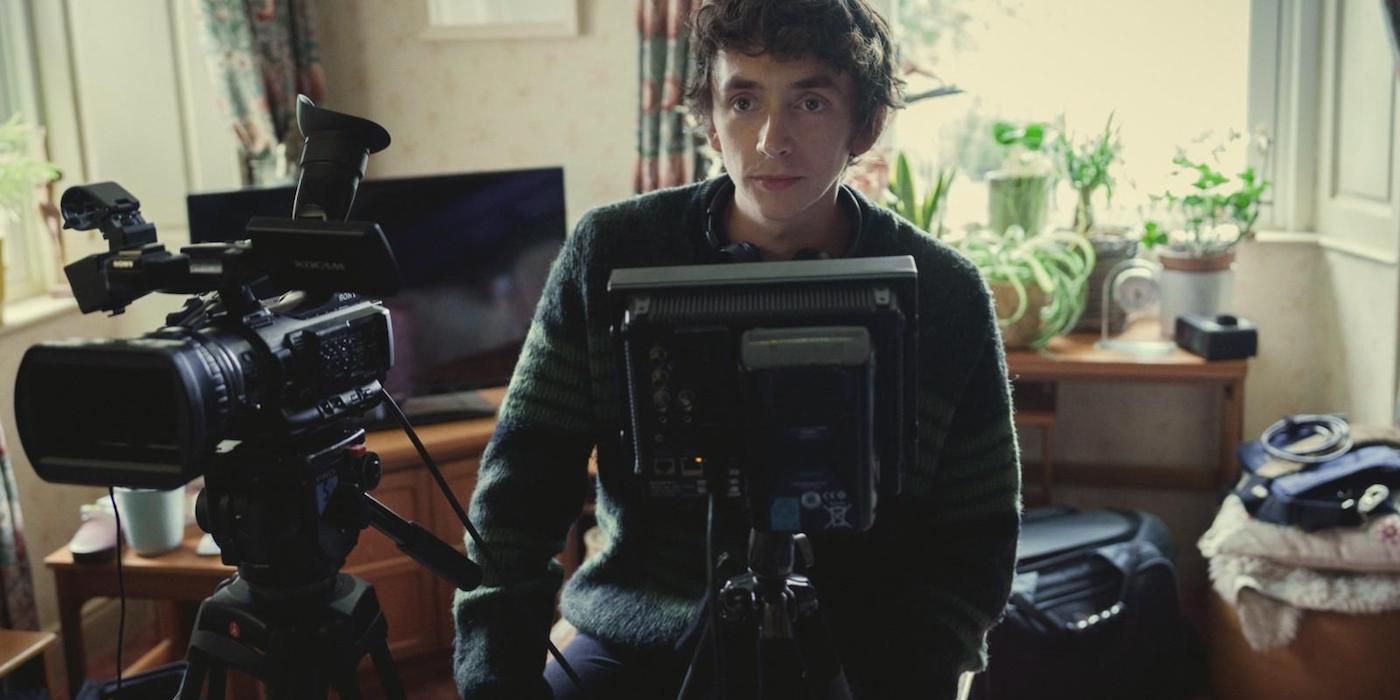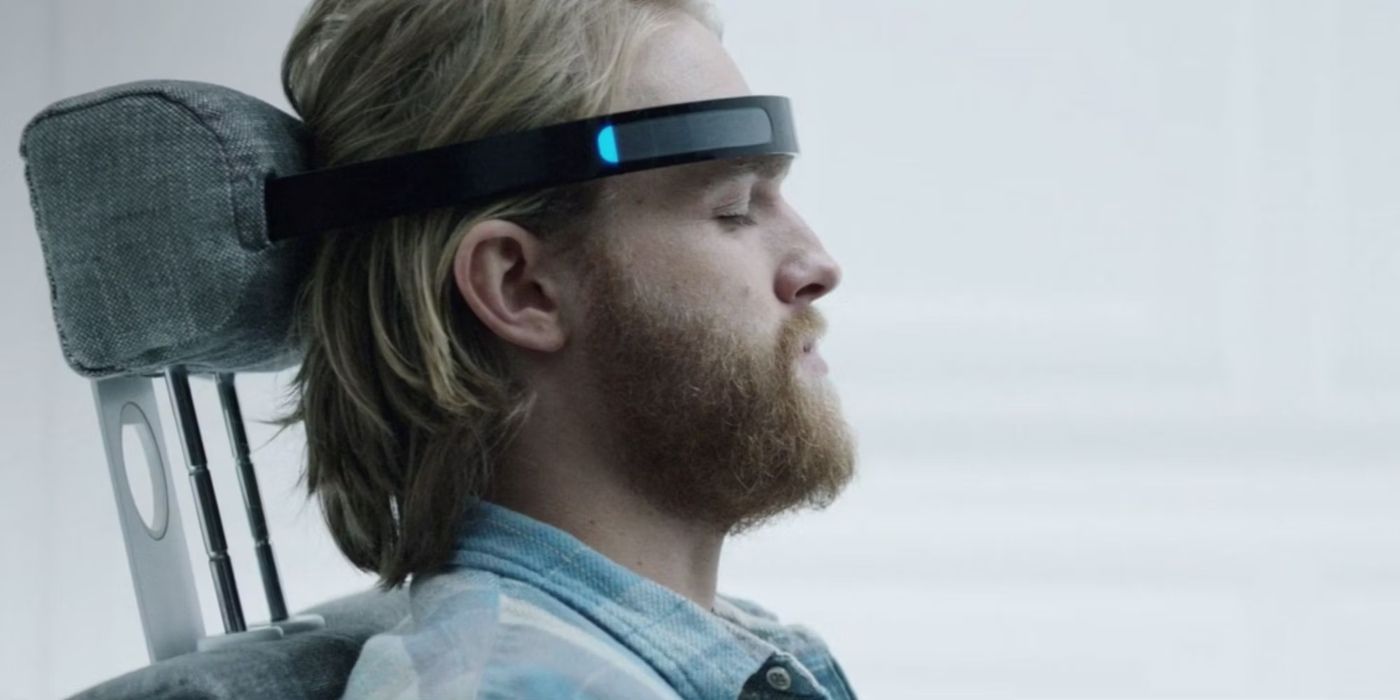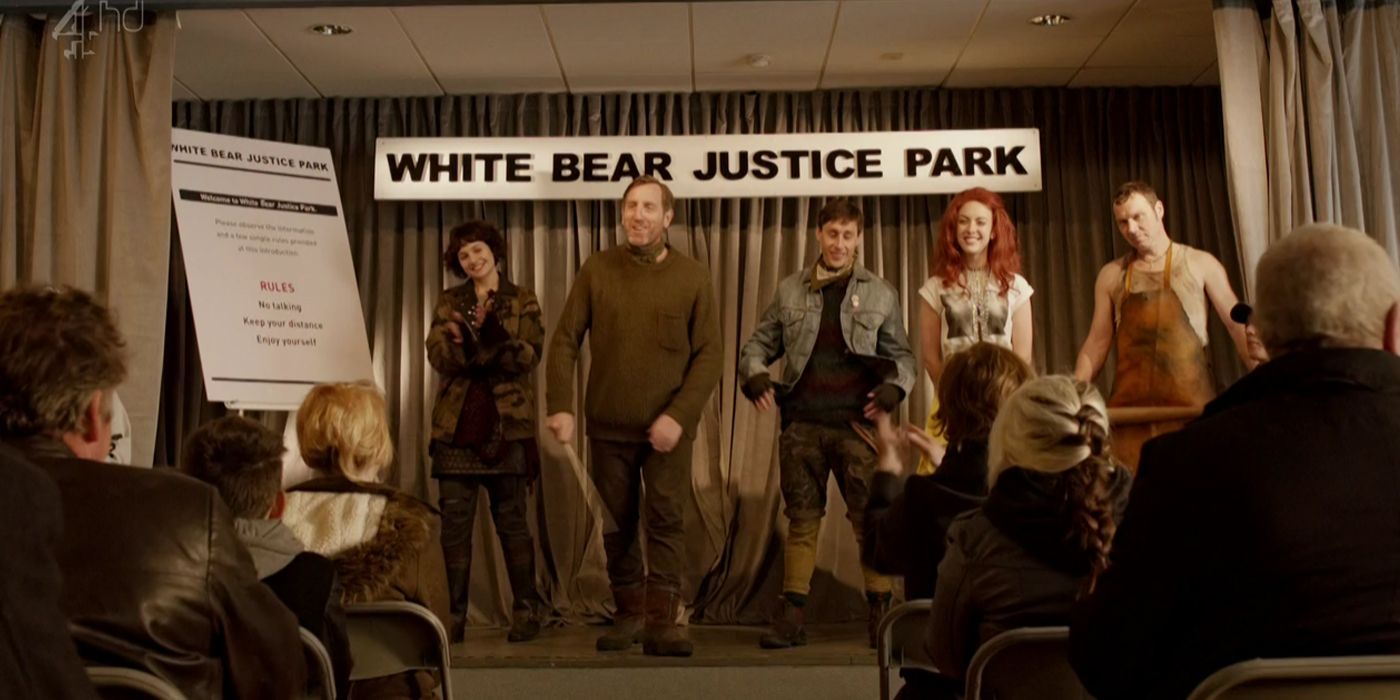Netflix's Black Mirror is often scary and unsettling, as it introduces its audiences to the world of futuristic technology. With every episode featuring new characters and an entirely different storyline, its ideas are seemingly limitless, and each tale is more disturbing than the last. Since the series' release in 2011, it has explored concepts like virtual reality and artificial intelligence to identity theft and the influence of social media on seeking validation from one's peers.
While some Black Mirror plotlines contain dark humor and social commentary, the show is most known for its unnerving and dystopian look at technology gone horribly wrong. The concepts it brings are unique but disturbing. Although an argument could be made that all Black Mirror episodes are disturbing, some are far worse than others.
Updated on April 15, 2024 by Jenny Melzer: Black Mirror's fictional commentary on society and technology is almost always disturbing to behold. At times, it feels very real when compared to technology already in use today, as if the world is just a few steps away from the horrors explored in each episode. This article has been updated to expand on the analysis for each disturbing episode, as well as to adhere to CBR's most current standard for formatting.
This article contains mentions of several unsettling topics.
15 Everyone Has Secrets, but In Crocodile Secrets Are No Longer Yours to Keep
Season 4, Episode 3
|
Rotten Tomatoes Score |
IMDB Rating |
|---|---|
|
48% |
7.3/10 |
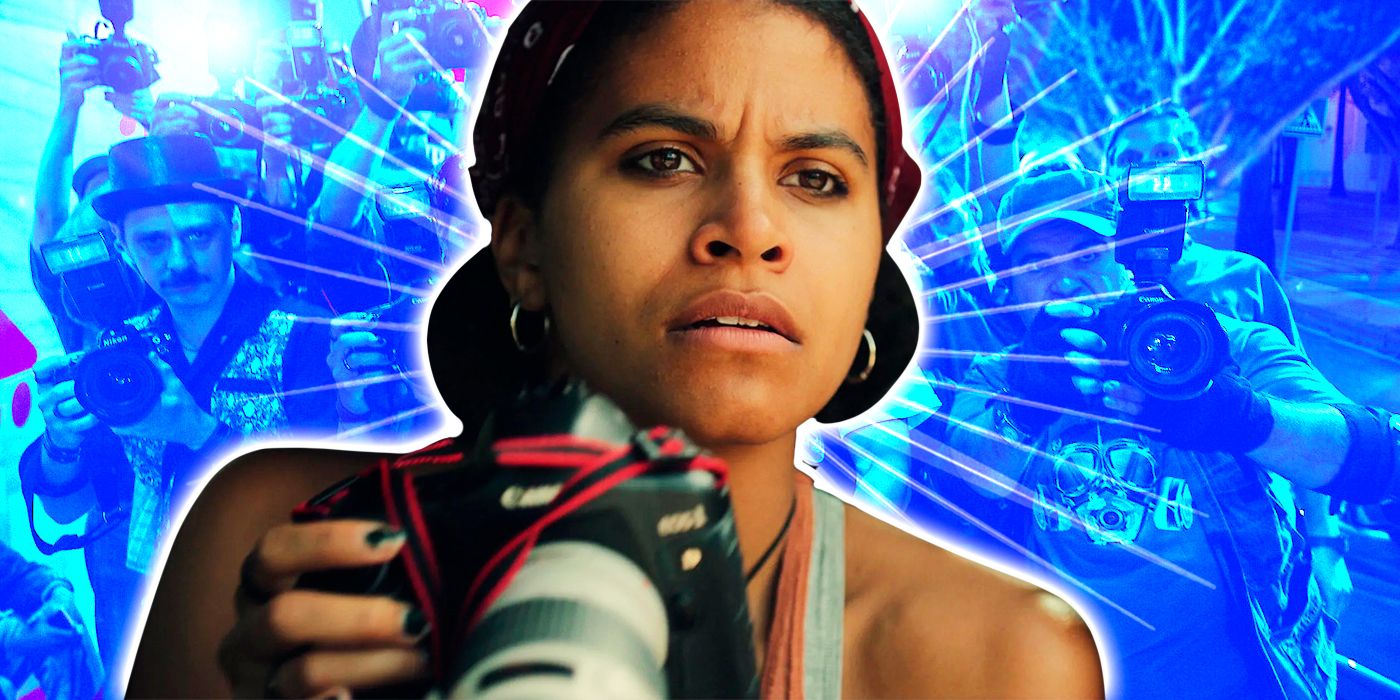
Black Mirror Renewed at Netflix for Season 7
Black Mirror is returning to Netflix for Season 7 after continuing to garner acclaim with Season 6.The episode "Crocodile" delves into the possibilities of A.I. technology that can perfectly recall and capture people's memories. While the tool might sound handy, the episode also proves how it can have dire consequences. When an insurance investigator uses a "Recaller" to visually examine a pedestrians' memories after a car accident, her investigation leads her to Mia, who has some dark secrets of her own.
As Mia tries to cover up her own trail of crimes, her memories are unwittingly exposed. This prompts her to kill the investigator and the investigator's entire family, including a newborn child. "Crocodile" features brutal violence throughout, a very different type of disturbing content from most Black Mirror episodes. While it's not uncommon to see news of incidents like this on the day to day, the fact that it was brought on by a technological advancement that takes an idividual's most private secrets and exposes them makes it that much more horrific.
14 Mazey Day's Focus On Society's Obsession With Celebrities Turns Horrific
Season 6, Episode 4
|
Rotten Tomatoes Score |
IMDB Rating |
|---|---|
|
60% |
5.3/10 |
Directed by Uta Briesewitz, "Mazey Day" follows a disenchanted paparazzo who wants to quit after pushing a closeted actor to suicide. When her economic situation forces her to take one last job, she tracks Mazey Day, an actress in rehab with a dangerous secret. Criticism for the paparazzi has been prevalent for decades. The relentless pursuit of celebrities has brought all manner of issues to the surface, like invasion of privacy, accidents, and even death.
"Mazey Day" is the first horror-themed episode of the series, but it still focuses on society's flaws. Driven by the knowledge that buyers will pay big for an exclusive private shot of Mazey Day, she crosses lines to get what she needs only to wind up with way more than she bargained for. With an incredible cast featuring Zazie Beetz, Clara Rugaard, and Danny Ramirez, "Mazey Day" reflects on America's celebrity fever and its resulting dehumanization of pop figures.
13 Be Right Back Explores Death and Loss In a Whole New Light
Season 2, Episode 1
|
Rotten Tomatoes Score |
IMDB Rating |
|---|---|
|
93% |
8/10 |
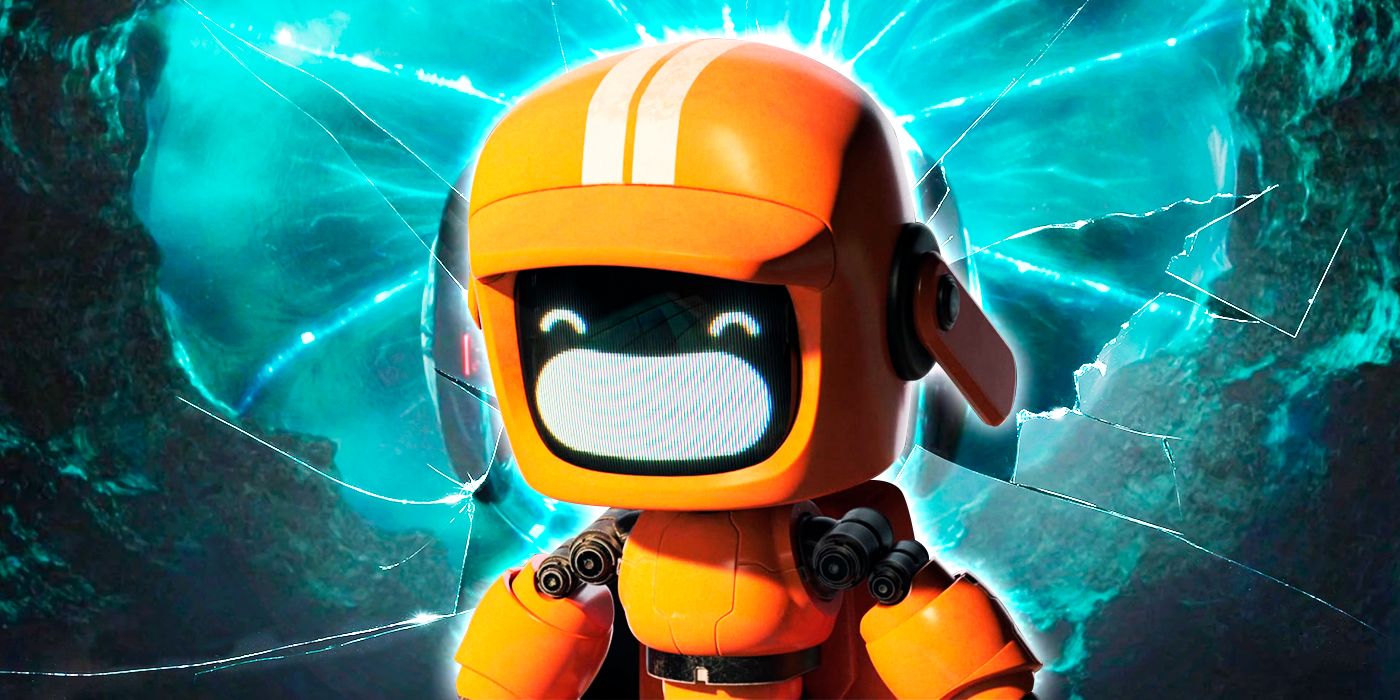
Love, Death & Robots Episodes That Hit as Hard as Black Mirror
Love, Death & Robots is the adult animated series equivalent of Black Mirror that fans shouldn't miss out on for more modern Twilight Zone feels."Be Right Back" deals with heavy and upsetting themes, which include grieving the loss of a loved one in an unhealthy way. After Martha's husband Ash is killed in a car accident, she signs up for a service that uses artificial intelligence to mimic his voice and personality. The AI combs old conversations to capture his personality, creating a nearly perfect version of him that fills the void and eases her grief.
Martha soon becomes dependent on the service after discovering she's pregnant, and it encompasses her entire life. She even goes so far as to order a synthetic human body that is identical to that of her deceased husband. It's a strange experience from the start, but as Martha comes to terms with the fact that he is not Ash, and never really will be, she locks him in the attic, because even though she knows it's not him, she still can't let go. She only allows her daughter to see him on the weekends.
12 Smithereens Takes an Unsettling Look at Social Media Obsession
Season 5, Episode 2
|
Rotten Tomatoes Score |
IMDB Rating |
|---|---|
|
63% |
7.5/10 |
"Smithereens" lacks the fantastical technology present in many Black Mirror episodes. Instead, it focuses on a very present societal issue. "Smithereens" addresses social media addiction, obsession, and grief. Nothing that happens in the episode is grotesque or impossible, which makes it all the more disturbing.
Every problem in "Smithereens" is something that could happen in real life. Many Black Mirror viewers are likely aware of how much they use social media in their own lives and how little they think of it. The episode's ambiguous ending and bittersweet best result only add to how unsettling it can be.
11 Loch Henry's Exploration of Society's True Crime Obsession Is Chilling
Season 6, Episode 2
|
Rotten Tomatoes Score |
IMDB Rating |
|---|---|
|
87% |
7.3/10 |
Davis and Pia, two amateur filmmakers, travel together to Loch Henry, Scotland, Davis' town. Here, they learn about the city's serial killer, Iain Adair, and decide to make a documentary about it. Unfortunately for them, the situation is closer than they expected, leading them to one of the most dangerous trips of their life.
"Loch Henry" sees Davis and Pia unfold a true conspiracy in the town and eventually reap a profit out of others' blood. This episode discusses true crime obsession and desensitization to violence due to mass media, as well as family ties and the way they define a person. What the two main characters discover about Davis' parents makes "Loch Henry" one of the scariest Black Mirror episodes ever.
10 Playtest's Most Disturbing Element Is How Close It Is to Reality Already
Season 3, Episode 2
|
Rotten Tomatoes Score |
IMDB Rating |
|---|---|
|
87% |
8.1/10 |
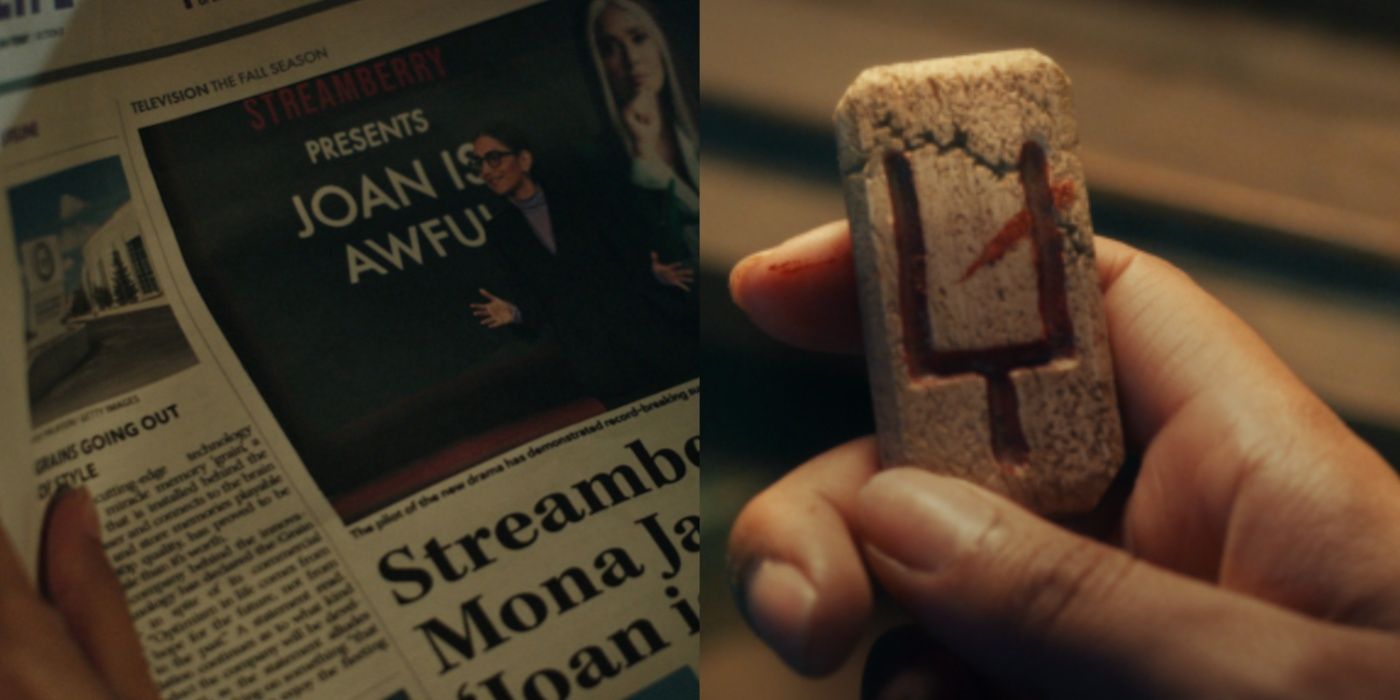
10 Best Easter Eggs in Season 6 of Black Mirror
Season 6 of Black Mirror is dotted with numerous references to other sections of the series and here's a breakdown of the best ones.The Black Mirror episode "Playtest" is particularly bone-chilling, since it incorporates technology that is already available. When Cooper signs up to test a virtual reality headset for a horror game, the distressingly realistic and disturbing visuals affect his mental health. From showing his worst fears to finding a way to simulate real-life pain in the game, the technology subjects Cooper to what seems like hours of severe torture. The episode plays with layers of reality to disorient and disturb the viewer, ending in the revelation that the events take place in Cooper's mind within 0.04 seconds before he dies.
Virtual gaming, while still a developing technology, is already available in many homes. Creating a realistic experience for gamers to explore, some can't help but wonder if these experiences will have long term effects, or potentially cause dangerous reactions. With many video games already coming with visual warnings about effects potentially causing seizures, it's not hard to imagine how those warnings apply to virtual reality--which feels all too real.
9 Hated In The Nation Turns the Tide on Online Bullies
Season 3, Episode 6
|
Rotten Tomatoes Score |
IMDB Rating |
|---|---|
|
81% |
8.5/10 |
In a disturbing episode that highlights the brutal pitfalls of mass online harassment, "Hated in the Nation" is relentless with its message. The Black Mirror installment features multiple horrifying deaths, all stemming from online bullying. As easy as it has been in the past for online bullies to torment people from behind the safety of their screen, "Hated In the Nation" took a brutal look at turning the target back on those who quickly jumped on the bandwagon to spread hate.
Hacker Garrett Scholes finds a way to program billions of autonomous drone insects to kill the person who receives the most "#DeathTo" posts online. As the targets are killed one by one, it's eventually revealed that Scholes is actually targeting the harassers who are perpetrating online mob culture. The technology is ultimately used to kill the over 300,000 people who used the hashtag as a means to spread hate.
8 Black Museum Takes a Hard Look At Wrongful Convictions
Season 4, Episode 6
|
Rotten Tomatoes Score |
IMDB Rating |
|---|---|
|
76% |
8.6/10 |
"Black Museum" showcases one horror story after another with its displays of futuristic technology. As museum proprietor Rolo takes a young woman named Nish through the exhibits, he divulges their unsettling backstories. The exhibits range from a neurological headset that caused an established doctor to "lose his mind," as well as a toy monkey that holds the consciousness of a comatose woman.
In a disturbing twist, Nish is eventually revealed to be the daughter of Clayton Leigh, whose consciousness is used as one of the Black Museum's exhibits. Clayton was an innocent man who was sent to death, and his exhibit replays his final agonizing moment over and over. To free her father's essence from its torturous prison, Nish poisons Rolo and resigns his consciousness to the same fate. After viewers see the unnerving exhibits and hear Clayton's tragic backstory, they'll undoubtedly be disturbed.
7 White Bear Explores the Dangers of Societal Justice
Season 2, Episode 2
|
Rotten Tomatoes Score |
IMDB Rating |
|---|---|
|
89% |
8/10 |
While societal justice might sound like an admirable concept, the Black Mirror episode "White Bear" shows how warped it can be under the wrong circumstances. After a woman wakes up without any memories, she is forced to endure fear and psychological torture for others' enjoyment. At the end of "White Bear," the woman is shown a clip of her past, revealing her to be the murderer of a small child.
The woman's subsequent imprisonment and torture in the White Bear Justice Park is part of her punishment. A device is eventually used to wipe her memory, so she may repeat the same mental torture repeatedly as one of the park's main attractions. This deconstruction of people's crueler desires is exactly what Black Mirror is about, and "White Bear" demonstrates just how quickly the best intentions can turn dark.
6 Nosedive Explores the Use of Social Media to Seek Validation
Season 3, Episode 1
|
Rotten Tomatoes Score |
IMDB Rating |
|---|---|
|
91% |
8.3/10 |
The most disturbing Black Mirror episodes emphasize human behavior, with technology merely facilitating it. "Nosedive" depicts a universal rating system that lets individuals rate each other based on their interactions, similar to social media. This rating determines a person's socioeconomic class.
"Nosedive" shows how devastating this would be from top to bottom. From people doing things solely to get a better rating, to how people can suffer a sharp fall in circumstances because of the judgment of others, it presents a nightmarish future. The episode's ultimate message is human and even optimistic, but there's a lot of darkness to watch first.


